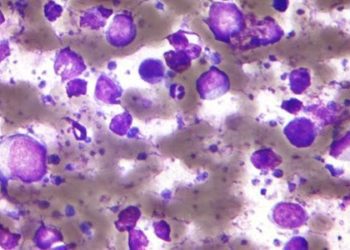Team-based care systems compare favorably with traditional practice models
1. Compared with traditional practice models, patients receiving care as part of a team-based approach utilized care less frequently at a lower cost.
2. While team-based care was associated with improved outcomes in several quality metrics, patients treated under traditional practice models had higher rates of blood pressure control.
Evidence Rating Level: 2 (good)
Study Rundown: Integrating primary care and mental health services into one multidisciplinary care team has been proposed as a way to improve the quality of care while reducing costs. However, limited data on the outcomes of such novel treatment models exists, and no study to date has shown the value of incorporating integrated care in a large delivery network. Thus, the authors of this study sought to compare the outcomes of patients who received primary care through traditional practice management (TPM) and team-based care (TBC) systems. Regarding the quality of care, patients receiving TBC had higher rates of documented self-care plans, adherence to diabetes care, and active depression screening. However, TPM was able to achieve higher rates of hypertension control. What’s more, patients utilizing TBC required fewer ED visits and hospital admissions, and represented a lower cost to the healthcare system.
This study reveals that TBC may improve the quality of care and costs when incorporated into a large healthcare delivery system. The study is strengthened by its large patient cohorts, extended follow-up, and assessment of both clinical outcomes and costs. However, it is limited by its evaluation of only a single healthcare provider (Intermountain Healthcare), and retrospective analysis. Further studies are warranted to delve deeper into the effects of patient-centered medical homes and other alternative healthcare delivery systems.
Click to read the study in JAMA
Relevant Reading: Lessons from the trenches – a high-functioning primary care clinic.
In-Depth [retrospective cohort]: This longitudinal, retrospective cohort study analyzed the delivery of care of 113 452 patients in the Intermountain Healthcare System over the course of 4 years. Roughly half of the patients received primary care services as part of TPM and the other half, TBC. Patients were all older than 18 years of age and had a continuous relationship with the Intermountain. Because of multiple analyses, significance was set at p-value of 0.008. Primary outcome measures were 1) depression screening, 2) adherence to a diabetes care bundle, 3) documented self-care plan, 4) adequate hypertension control (<140/90mmHg), 5) documented advanced directives, 6) annual visit with PCP, 7) hospital admissions, 8) ED visits, 9) ambulatory setting visits, 10) PCP visits, 11) specialty clinic visits, and 12) urgent care visits. A final outcome assessed the cost of total care to the delivery system for each patient.
Patients receiving TBC had higher rates of depression screening (46.1% vs. 24.1%), adherence to a diabetes care bundle (24.6% vs. 19.5%), and documented self-care plans (48.4% vs. 8.7%), but lower rates of hypertension control (85.0% vs. 97.7%, p < 0.008 for all). There were no significant differences in the other quality metrics. Regarding utilization of care, TBC accounted for fewer ED visits (18.1 vs. 23.5 per 100 person-years), hospital admissions (9.5 vs. 10.6), and PCP appointments (232.8 vs. 250.4), with no difference in specialty care or urgent care use. Per-patient payments to the healthcare delivery system were lower with TBC as well ($3400 vs. $3515).
Image: PD
©2016 2 Minute Medicine, Inc. All rights reserved. No works may be reproduced without expressed written consent from 2 Minute Medicine, Inc. Inquire about licensing here. No article should be construed as medical advice and is not intended as such by the authors or by 2 Minute Medicine, Inc.


![2MM: AI Roundup- AI Cancer Test, Smarter Hospitals, Faster Drug Discovery, and Mental Health Tech [May 2nd, 2025]](https://www.2minutemedicine.com/wp-content/uploads/2025/05/Untitled-design-350x250.png)





